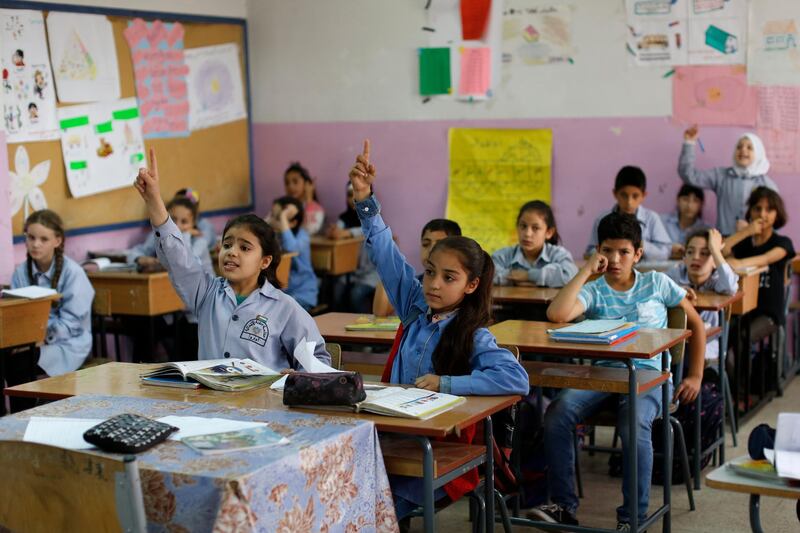Hotter weather can lead to lower exam results, a major university study has suggested.
Researchers at Harvard University, the University of California Los Angeles and Georgia State University quantified what teachers have long known: students in warm classrooms find it harder to concentrate and are more easily distracted.
The results, which were published this month, indicate that hot weather may reduce learning in both the short and long run.
Hot weather on the day of an exam, as well as extended heat during the school year, lowered test scores, the study published by the National Bureau of Economic Research in the United States showed.
______
Read more:
UAE weather: Hot and humid as temperatures continue to climb
UAE's Indian school pupils achieve above average CBSE exam results
______
Previous studies have shown how hotter countries tend to be poorer and how in laboratory conditions test subjects perform worse on cognitive tasks when the heat is increased. But the US research was the first major study to show how higher temperatures affect students in the classroom.
Entitled "Heat and Learning", it linked test scores from 10 million American students to daily weather data. The results showed that an average temperature increase of just 0.55C over a year resulted in a 1 per cent decrease in learning.
The researchers also suggested that climate change will also affect learning. If hotter classrooms reduce learning, then the future earnings of students will fall. And if temperatures continue to rise as predicted by global warming models, students from an average-sized classroom could together lose $25,000 over their lifetime if air conditioning is not installed.
The impact of hot weather on learning is more likely to affect poor students, the study notes.
The research builds on an earlier study of New York City high school exit exams. That study showed students who take an exam on a 32 degree day are 12 per cent more likely to fail than if they took the same exam on a 22 degree day.
The researchers advise that teachers should consider increasing grades for students who are forced to take exams in hot settings.
For parents worried about the impact of heat on their children’s learning, the study provides some comfort: air conditioning in schools eliminates the negative impact of hot weather on learning.






